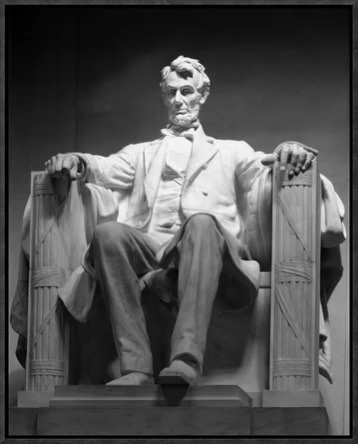From the Second Inaugural Address March 4, 1865 to a divided nation.
At 701 words this is the second shortest address given by a President. He invokes God fourteen times, and mentions the Bible four times. He uses inclusive language to avoid polarizing further the nation’s feelings at the war’s termination. He talks about forgiveness and reconciliation. In the style of a preacher from the Great Awakening, he first provides a scriptural injunction and closes with an imperative, therefor we must. . .
Both read the same Bible, and pray to the same God; and each invokes His aid against the other. It may seem strange that any men should dare to ask a just God’s assistance in wringing their bread from the sweat of other men’s faces (Gen 3:19); but let us judge not, that we be not judged (Matt 7:1). The prayers of both could not be answered; that of neither has been answered fully.
With malice toward none, with charity for all; with firmness in the right, as God gives us to see the right, let us strive on to finish the work we are in; to bind up the nation’s wounds; to care for him who shall have borne the battle, and for his widow, and his orphan—to do all which may achieve and cherish a just, and lasting peace, among ourselves and with all nations.
Editor’s comment:
This excerpt is from a lecture by Dr. Ronald C. White (BA, UCLA; PhD Princeton University) an independent scholar and authority on Abraham Lincoln. He is the author of Lincoln in Private: What His Most Personal Reflections Tell Us about Our Greatest President.
Lincoln’s words are timeless, especially as we face our political divisions today. They were transformative when first prepared. They feel even more profound today.
Ronald White’s complete lecture can be heard here.

